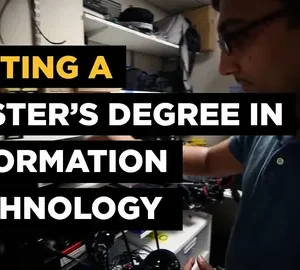Johns Hopkins University PhD Programs | Graduate Studies
Welcome to the world of Johns Hopkins University PhD programs. This place is all about learning and new ideas. It was started in 1876 and is known for leading in research and teaching.
If you want to learn more and get better at your job, Johns Hopkins is a great place. They have many graduate programs. You’ll be in a place that helps you grow and make a big impact in your field.
Overview of Johns Hopkins University PhD Programs
Johns Hopkins University has many PhD programs. They cover areas like public health, engineering, arts, and sciences, and business. Each program mixes tough classes with real research, helping you get good at your field.
The university wants you to think new and solve big problems. When you look at the programs, know about the johns hopkins phd admissions. You need to check the johns hopkins phd requirements for each one. This makes sure you’re ready and fit with the university’s goals.
Advantages of Pursuing a PhD at Johns Hopkins
Getting a PhD at Johns Hopkins University has many benefits. It’s known for its focus on research and learning. You’ll work with top experts in your field.
Exceptional Faculty
The teachers at Johns Hopkins are among the best. They help students a lot. This helps you learn more and meet new people.
Diverse Research Opportunities
Johns Hopkins has lots of research projects. You can work in health, engineering, or social sciences. These projects help you think differently and work with others.
| Advantage | Description |
|---|---|
| Exceptional Faculty | Access to leading experts dedicated to student mentorship |
| Diverse Research Opportunities | Collaboration on groundbreaking projects across various disciplines |
| Networking Potential | Connections with professionals and researchers in your field |
| Academic Support | Guidance from experienced faculty throughout your PhD journey |
Johns Hopkins University PhD Programs Across Different Fields
Johns Hopkins University has many PhD programs. They cover areas like public health, biomedical engineering, and education. Each program gives students a strong base and encourages growth and new ideas.
The johns hopkins doctoral degrees are known for mixing different fields. This way, students learn from each other and come up with new ways to solve problems. It’s all about working together to find better solutions.
At Johns Hopkins, you’ll meet top experts and use the latest tools. The PhD programs are designed to help you succeed. They let you mix different areas of study, making your learning journey exciting and changing.
Understanding the Johns Hopkins PhD Admissions Process
Getting into Johns Hopkins PhD is a big step. It has a set timeline and needs certain documents. Knowing the steps and what’s needed can really help you get in.
Application Timeline
The Johns Hopkins PhD timeline helps you know what to do. Applications start in the fall and end in early winter. Here are the important dates to remember:
| Event | Date |
|---|---|
| Application Opens | Early October |
| Application Deadline | Early January |
| Notification of Admission Decisions | Mid-March |
| Enrollment Confirmation Deadline | End of April |
Required Documents
To get into Johns Hopkins PhD, you need to gather certain documents. Making sure you have everything can make your application smoother. Here are some common documents:
- Official Transcripts
- Letters of Recommendation (usually 2-3)
- Statement of Purpose
- Curriculum Vitae or Resume
- Standardized Test Scores (if applicable)
By knowing the timeline and preparing your documents, you’re on the right path. This can make your application process easier.
Eligibility Criteria for Johns Hopkins PhD Programs
Before applying to a Johns Hopkins PhD program, know the key criteria. You need a master’s degree or a top-notch bachelor’s degree. This education is key to handle the program’s tough demands.
Some programs have extra needs. These might include special courses or lots of research experience. Make sure to check the johns hopkins phd requirements for each program you’re interested in.
It’s also important to show you fit with the faculty’s research. Working with faculty can make your application stronger. Your application should show you understand and value their research.
- Master’s degree or bachelor’s degree with strong academic credentials
- Relevant prior coursework
- Research experience
- Alignment with faculty research areas
| Degree Type | Required Background | Research Experience |
|---|---|---|
| Master’s Degree | Relevant discipline | Preferred |
| Bachelor’s Degree | Outstanding academic performance | Highly encouraged |
| Doctoral Programs | Varies by specialization | Crucial for competitiveness |
Johns Hopkins University PhD Programs: Requirements You Should Know
Knowing the requirements of johns hopkins phd programs is key for students. These include coursework, exams, a dissertation proposal, and the final dissertation. Each part is important for your learning journey.
Coursework is the first step in your PhD studies. You’ll take classes to improve your research and knowledge. Then, exams check if you know your stuff well.
Next, you’ll write a dissertation proposal. It outlines your research goals and how you plan to do it. After approval, you start writing your dissertation. It’s a big piece of research that adds new knowledge to your field.
Working with others makes learning better. The tough work in johns hopkins doctoral programs details helps you grow. It also gives you a chance to get feedback and learn from others.
| Requirement | Description |
|---|---|
| Coursework | Engage in classes that provide necessary theoretical and practical knowledge. |
| Comprehensive Examinations | Assess understanding of core topics in your field. |
| Dissertation Proposal | Outline your research objectives and methodology. |
| Final Dissertation | Conduct original research and document findings in a substantial written work. |
Meeting these requirements gets you ready for your dissertation. It also prepares you for your future career in academia or industry.
The Financial Aspects of Johns Hopkins PhD Programs
It’s key to know the money side of Johns Hopkins PhD programs. You’ll face tuition costs that are a big part of your budget. Scholarships and grants can also help with your money worries as you study.
Tuition Costs
Johns Hopkins PhD tuition is high because of the program’s prestige. Students pay a competitive price, which changes by department. Tuition goes up every year, so check the latest prices to plan well.
Available Scholarships and Funding Options
There are many ways to pay for Johns Hopkins PhD programs. These include:
- Johns Hopkins PhD scholarships: Given for good grades and money need.
- Grants: Money that doesn’t need to be paid back, based on need.
- Fellowships: Give money and cover tuition, so you can focus on research.
- Teaching Assistantships: Help teach while you get tuition off and a salary.
Future PhD students should look into these funding options. This way, they can focus on their studies without worrying about money too much.
| Funding Type | Description | Eligibility Criteria |
|---|---|---|
| Scholarships | Awarded based on merit or financial need. | Varies by scholarship |
| Grants | Financial assistance not requiring repayment. | Demonstrated financial need |
| Fellowships | Provides stipends alongside tuition coverage. | Program-specific criteria |
| Teaching Assistantships | Involves assisting in teaching while covering tuition. | Admission to selected programs |
Key Features of Johns Hopkins Doctorate Degrees
Johns Hopkins University is known for its top doctorate programs. It offers a special learning environment. Here, interdisciplinary collaboration at Johns Hopkins is key. This means working together across different subjects to solve big problems.
Being a doctoral student here means your research gets better. You also see things from different angles.
Interdisciplinary Collaboration
The interdisciplinary collaboration at Johns Hopkins breaks down old school walls. It brings together students from different areas. This mix of ideas makes your research better.
There are many chances to work together. You can share ideas and resources in seminars and projects.
Networking Opportunities
For PhD students, making connections is crucial. At Johns Hopkins, there are lots of chances to meet others. You can go to conferences, alumni events, and workshops.
These meetings help you grow your network. You also get advice from experts in your field. This helps you on your academic and career path.
| Key Features | Description |
|---|---|
| Interdisciplinary Projects | Encouragement to work across various fields, enhancing innovative research. |
| Collaborative Seminars | Facilitates knowledge exchange among departments. |
| Professional Conferences | Opportunities to meet industry leaders and peers. |
| Alumni Networking | Connections with successful graduates for mentorship and guidance. |
Success Stories: Alumni of Johns Hopkins PhD Programs
Johns Hopkins PhD alumni have amazing success stories. They go into many fields, making big impacts. Their hard work and knowledge shine through.
Career Paths Taken by Graduates
Johns Hopkins graduates go into many careers. They become professors, researchers, and business leaders. Their paths show how versatile a Johns Hopkins PhD is.
- Professor roles in prestigious universities
- Leadership positions in biotechnology firms
- Research scientists in governmental agencies
- Policy advisors for non-profit organizations
Impact on Research and Industry
Johns Hopkins PhD graduates make big changes. They lead research in health, engineering, and social sciences. Their work solves big problems.
“The training at Johns Hopkins prepared me to tackle complex problems in my field. I strive to create solutions that truly make a difference,” shares a notable alumnus in environmental science.
Conclusion
Looking into the johns hopkins university phd programs overview shows it’s a great choice. It’s perfect for those wanting to grow their knowledge and lead in their field. The academic setting is tough but rewarding, with top-notch teachers guiding you.
The johns hopkins phd offerings cover many subjects. Each program is made to help you succeed. You’ll find chances to work with others, make connections, and use the university’s vast resources.
Getting a PhD from Johns Hopkins could boost your career. It could make you a leader in your field. Think about how this top school can shape your future and your impact on research and business.
FAQ
What PhD programs does Johns Hopkins University offer?
Johns Hopkins University has many PhD programs. You can study public health, engineering, arts, sciences, and business. Each program focuses on new ideas and real-world use.
What are the admissions requirements for Johns Hopkins PhD programs?
To apply, you need a master’s degree or a high-achieving bachelor’s degree. Some programs might ask for research experience or specific courses.
What is the application process for Johns Hopkins PhD programs?
Apply online and send your transcripts, letters of recommendation, and a statement of purpose. You might need test scores too. Make sure to know the application deadlines.
How much does it cost to attend a PhD program at Johns Hopkins?
Tuition varies by program. Remember to budget for fees and living costs too. Check the university’s website for exact costs.
Are there scholarships or funding options available for PhD students at Johns Hopkins?
Yes, there are scholarships, grants, fellowships, and teaching assistantships. These can help lower your study costs.
What are the key components of a Johns Hopkins PhD program?
Your program includes courses, exams, a dissertation proposal, and your final dissertation. You’ll also do independent and team research with faculty and peers.
How does interdisciplinary research play a role in Johns Hopkins doctoral programs?
Johns Hopkins values interdisciplinary research. It encourages working together across fields to innovate. This method improves learning and prepares you for future challenges.
What networking opportunities are available to PhD students at Johns Hopkins?
There are many chances to network, like conferences, workshops, and alumni events. These help you meet professionals and find jobs after graduation.
What career paths do alumni from Johns Hopkins PhD programs typically pursue?
Johns Hopkins PhD graduates go into many fields. They become professors, industry leaders, and influential researchers. Their success shows the value of a Johns Hopkins degree.




